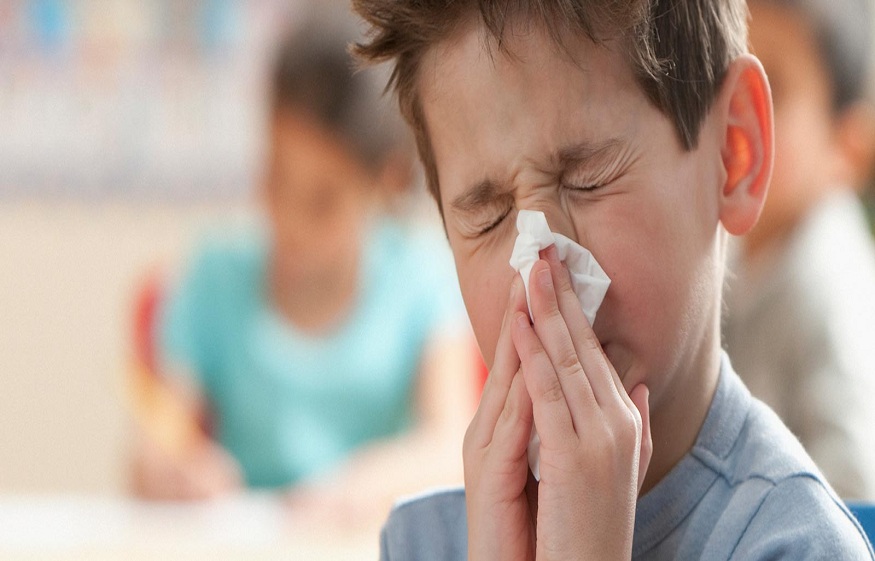Childhood allergies and immune disorders are a growing concern in today’s world. Allergies can manifest in various forms, ranging from mild discomfort to life-threatening reactions. Immune disorders, on the other hand, can affect a child’s ability to fight off infections and lead to recurrent illnesses. Paediatric allergy and immunology is a specialized field of medicine that focuses on the diagnosis, management, and treatment of these conditions in children.
In this blog post, we will explore the world of paediatric allergy and immunology, and discuss strategies for effectively managing childhood allergies and immune disorders.
-
Understanding Childhood Allergies
Childhood allergies occur when the immune system overreacts to harmless substances, such as pollen, dust mites, animal dander, or certain foods. Common types of allergies in children include allergic rhinitis (hay fever), asthma, eczema, food allergies, and insect sting allergies. Symptoms can range from mild to severe, and may include sneezing, itching, hives, wheezing, swelling, or anaphylaxis, a severe and potentially life-threatening allergic reaction.
-
Diagnosing Childhood Allergies
Accurate diagnosis is crucial for effective management of childhood allergies. Paediatric allergists employ various diagnostic tools, including medical history evaluations, physical examinations, skin prick tests, blood tests, and sometimes oral food challenges, to identify specific allergens triggering an allergic response. Identifying the allergens allows for targeted treatment and prevention strategies to be implemented.
-
Managing Childhood Allergies
Managing childhood allergies involves a combination of allergen avoidance, medications, and allergen immunotherapy, also known as allergy shots. Allergen avoidance measures include keeping environments free of known allergens, implementing dust mite or pet dander control measures, and identifying and avoiding trigger foods. Medications, such as antihistamines, nasal sprays, or inhalers, may be prescribed to alleviate symptoms and manage acute allergic reactions. Allergen immunotherapy is a long-term treatment option that involves gradually exposing the child to increasing doses of specific allergens to build tolerance and reduce the severity of allergic reactions over time.
-
Immune Disorders in Children
Immune disorders can impact a child’s ability to defend against infections and can result from deficiencies in the immune system or dysfunction of specific immune components. Examples of immune disorders in children include primary immunodeficiency diseases (PIDDs), autoimmune disorders, and hypersensitivity disorders. Children with immune disorders are more susceptible to recurrent infections, and their conditions require specialized care and management by paediatric immunologists.
-
Diagnosing and Managing Immune Disorders
The diagnosis of immune disorders in children involves a thorough evaluation of medical history, physical examination, laboratory tests, and specialized immunological investigations. Treatment options for immune disorders vary depending on the specific condition but may include immunoglobulin replacement therapy, prophylactic antibiotics, anti-inflammatory medications, and in severe cases, bone marrow or stem cell transplantation. Additionally, proper education, infection prevention strategies, and close monitoring are essential for effectively managing immune disorders in children.
-
Collaborative Care and Support
Managing childhood allergies and immune disorders often requires a multidisciplinary approach. Paediatric allergists, immunologists, nurses, dietitians, and other healthcare professionals work collaboratively to provide comprehensive care to children and their families. This team approach ensures that the child’s specific needs are met, and strategies are in place to minimize allergic reactions, prevent infections, and optimize the child’s overall health and well-being.
Conclusion
Paediatric allergy and immunology play a crucial role in identifying, managing, and treating childhood allergies and immune disorders. Through accurate diagnosis, targeted interventions, and ongoing support, children with allergies and immune disorders can lead healthy and fulfilling lives. Awareness, education, and collaboration between healthcare providers and families are key to effectively managing these conditions and improving the quality of life for affected children.

